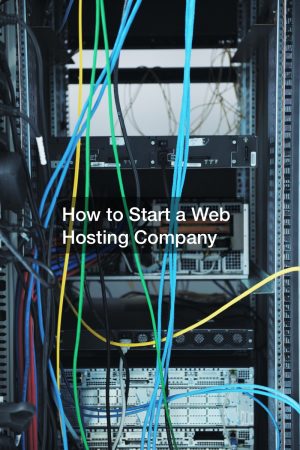
As an entrepreneur, you have great ideas when starting your business. However, after the honeymoon stage, when you continuously get new customers, and your products and services sell reasonably well, the execution phase starts to stall. You start to notice that your business has remained the same for a while; what could be wrong? You must have made a mistake when executing your plan, but don’t worry. You can correct mistakes once you identify their cause, so let’s dive in.
1. Tax Evasion

Tax evasion may be described as not paying taxes owed. According to William Gale, this is a major problem in the United States, with roughly one in every six dollars owed in federal taxes misappropriated. It can either be deliberate or unintentional. However, it’s different from tax avoidance since it’s illegal according to Section 7201 of the United States Internal Revenue Code. In contrast, tax avoidance is a matter of ethics.
Other than resulting in your business failing in a big way, tax evasion has other consequences that may include jail time, fines, or both. For many small businesses, hiring a tax accountant may appear as an unnecessary expense. However, the benefits of having a professional to help with your business taxes will, in the long run, outweigh the expense.
Therefore, don’t stress yourself by trying to manage your taxes. Leave it to the experts. With over 510739 tax accountants in the market, finding the right accountant can be a daunting task. However, you can start by getting referrals from other players in the market, friends, family, or attorneys you can trust.
2. Lack of Employee Work/Life Balance
Running a business comes with its fair share of responsibilities, one of them being ensuring there is employee work/life balance within your organization. However, this is easier said than done. Most employers tend to focus on the work aspects of their employees and forget about their lives outside the work environment. Although this responsibility doesn’t solely fall on you, the employer, you can put in place policies and regulations that can bring about the much-needed balance.
The truth is, employees need to work and have enough money to support their lives outside the office, so how then can you ensure the balance without affecting the employees’ pay cheques? For starters, you can offer flexible working options within your business. If your employees have enrolled in private schools to further their careers, flexible working conditions will allow them to attend classes without compromising their work lives. In addition, you can provide paid-off days that the employees can use to relax and get a much-needed break from the rat race.
Some notable benefits of ensuring work-life balance include a better company reputation, boosted employee morale, increased productivity, and reduced stress. Remember, your employees are the backbone of your business, and failure to ensure balance can potentially result in your business failing in a big way. Work-life balance will not only help your employees thrive in their personal lives but will also help them perform better in the workplace, a win-win.
3. EPA Violations
Due to increased awareness of environmental issues caused by human activities, EPA was established in December 1970 as a federal government agency to protect both human and environmental health. Through a terrestrial ecotoxicology study, the agency came up with rules and regulations that companies have to abide by when conducting business. Remember how disasters were a norm in the 1960s? Today, thanks to the EPA, people no longer have to worry about acid rain damaging trees and marine life. According to Danny Broberg, since the agency’s establishment, the ozone layer has gradually shown signs of healing.
Unfortunately, some companies still risk their businesses failing in a big way by violating EPA regulations. However, the agency has the power to initiate criminal and civil actions against companies found to be in violation. The enforcement of the law may include fines and penalties. In some severe cases, a violation may result in jail time.
4. OSHA Violations

As a business owner, it is your responsibility to create a safe working environment and abide by OSHA regulations. Regardless of the industry, safety risks are involved when running a business. Any safety-related occurrences within the business can affect employee morale, quality of work, and productivity. In the long run, this may result in your business failing in a big way. Generally, a safe workplace will be beneficial for both employees and employers alike.
To ensure you eliminate all safety hazards in your business, you should first start by identifying all hazards present. This will require you to assess all environments and equipment to ensure they are pristine. Suppose your business operates in the construction industry.
In that case, you will also have to ensure the safety of not only your employees but any other persons who visit the site. Unfortunately, workplace injuries are more common than you think. In fact, according to the National Safety Council, an employee is injured in the workplace every seven seconds. Some of these injuries are fatal, while others may cost the business money when seeking walk-in urgent care services from local hospitals.
The surest way to ensure safety in your business is to abide by OSHA regulations. However, businesses still violate regulations that include fall protection, ladders, respiratory protection, scaffolding, and many more. According to OSHA, you attract a penalty of not more than $70,000 for each willful violation. If the violation results in employee death, you may also serve jail time for not more than six months.
5. Cutting Corners
When starting a new business, it’s important to analyze the competition in your field of business. Some business owners do this for all the right reasons, while others want to replicate the services and goods offered only cheaper. They source for cheaper materials, which, more often than not, are of lower quality.
The truth is, this will eventually result in your business failing in a big way. At first, it may look like you’ve gotten away with it when your client base grows. However, in the long run, customers will realize they are short-changed and, therefore, shun your business. According to Kylee Collings, it takes just one bad experience for your customer to move on to a different business.
The bottom line is that giving your customers quality services and products will help to promote brand loyalty. In addition, who wouldn’t want their business advertised and marketed at zero cost? Satisfied customers become your very own unpaid brand ambassadors, hence increasing business in the long run. For example, go to a mechanic for an auto repair service, and they fix and restore your car without cutting corners. You will likely recommend them to anyone seeking a similar or related service.
6. Lack of Networking
Not everyone is excited about meeting and interacting with new people. Unless you are a social butterfly, networking may be challenging. However, in today’s competitive business environment, business networking is a valuable tool that will allow you to learn from other successful players in the field, grow your business, expand your knowledge, and tell others about your business. It’s, therefore, safe to say that failure to create networks will potentially result in your business failing in a big way.
As much as you may want to do business without asking or getting help from anyone, in reality, it’s impossible. You’ll need to, at one point, work with suppliers or vendors. Typically, people prefer to do business with people they like, know, and trust.
The best way to create relationships in the industry is to attend business seminars, join a networking group, or create a social media profile. Remember, to ensure effective networking, you must look for the right people. For example, if you run a metal building company, it’ll help to know other professionals in the same field.
7. No Innovation

The business world keeps evolving daily, and you can’t solve new problems with old solutions. Entrepreneurs, therefore, need not be complacent by embracing innovation within their businesses. The truth is you don’t have to wait for the industry to make changes for you to implement changes in your business; be the change. According to Will Purcell, companies that stand out from the rest of the competition and become key players in different industries all have one thing in common: they embrace innovation.
Many unforeseen challenges occur when running a business, and they may result in your business failing in a big way. However, through innovation, your business can stay ahead of the curve and grow. On the other hand, not innovating will cause your business to be left behind in the industry. For example, if you run a garage and a client brings in their car for a transmission repair service, if you haven’t embraced innovation, you may fail to complete the job as efficiently as a different contractor who has embraced innovation would, compromising the quality of your services and your reputation in the process.
8. Toxic Workplace
According to Megan Leonhardt, about two-thirds of workers in the United States have encountered toxic workplace environments. Statistics show that employees value a healthy working environment more than the actual pay they receive. According to Ryan Stoltz, many employees resign due to toxic working environments. With good reason: toxic workplaces compromise employees’ mental and physical well-being.
Although the signs vary from industry to industry, there are common ones to look out for. For example, if you run a local site excavation company, one of the things to watch out for is low enthusiasm. Your employees may seem unhappy and unmotivated to carry out the duties assigned to them. Other signs to look for include excessive stress levels, role confusion, and pervasive office gossip.
9. No Development of Employee Skills
If you want your business to stand a chance in today’s competitive business world, upskilling and reskilling should be among your primary focus areas within your organization. Companies that forego investing in employee skills development risk higher challenges maintaining talented staff, lower engagement, losing top performers, and ultimately failing in a big way. Developing employees’ skills will help you cut down on replacement costs and improve the overall performance in the workplace.
According to Ishani Vats, 87% of employers reported having trouble finding skilled and qualified candidates to fill different positions within their businesses. Both employees and employers have different roles to play when it comes to implementing employee skill development. One of the ways to develop your employee skills is through training, which can be done in a formal or informal setup. If you run an ac company, you can offer training classes by hiring a qualified instructor to train your staff on the new technologies being used in the industry. Examples of notable benefits of employee skill development include succession planning, increased performance and productivity, staff development, continuous improvement, and talent attraction.
10. Quick Expansion

Once you set up your business and it starts to make tangible profits, your next objective is to see it grow. After all, a business that stagnates is doomed to eventually die. While growth is important in business, rapid growth comes with its fair share of risks and dangers that could result in your business failing in a big way. Therefore, to grow your business effectively and efficiently, you need to lay down smart strategies and carry out intensive research.
One major problem associated with rapid growth is too much of a workload on the employees. If, for example, you run a tree removal company, when you grow your business too quickly, you may require your employees to take on more projects than they can realistically handle. This will increase stress levels among your staff and lower their morale. Eventually, some of the employees may end up resigning due to increased workload and pressure to perform.
If you have always had a dream to own your own business, you will first have to overcome the challenges in the starting phase to successfully move on to the second phase when you start running it. Mistakes when running your business are inevitable. The trick is to learn from them to ensure they don’t happen again.



